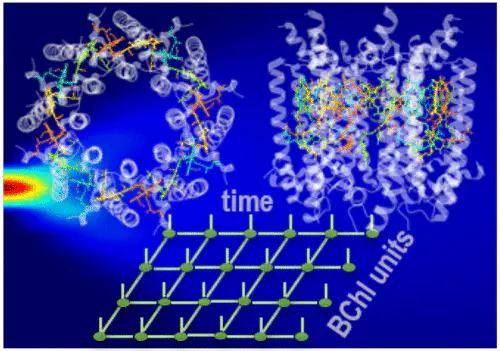Tensor Network Path Integral Study of Dynamics in B850 LH2 Ring with Atomistically Derived Vibrations

Abstract
The recently introduced multisite tensor network path integral (MS-TNPI) allows simulation of extended quantum systems coupled to dissipative media. We use MS-TNPI to simulate the exciton transport and the absorption spectrum of a B850 bacteriochlorophyll (BChl) ring. The MS-TNPI network is extended to account for the ring topology of the B850 system. Accurate molecular-dynamics-based description of the molecular vibrations and the protein scaffold is incorporated through the framework of Feynman extendash Vernon influence functional. To relate the present work with the excitonic picture, an exploration of the absorption spectrum is done by simulating it using approximate and topologically consistent transition dipole moment vectors. Comparison of these numerically exact MS-TNPI absorption spectra are shown with second-order cumulant approximations. The effect of temperature on both the exact and the approximate spectra is also explored.